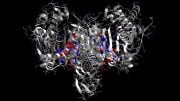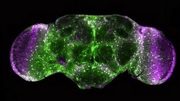Tsimane people are unique for their healthy brains that age more slowly.
A team of international researchers has found that the Tsimane indigenous people of the Bolivian Amazon experience less brain atrophy than their American and European peers. The decrease in their brain volumes with age is 70% slower than in Western populations. Accelerated brain volume loss can be a sign of dementia.
The study was published today (May 26, 2021) in the Journal of Gerontology, Series A: Biological Sciences and Medical Sciences.
Although people in industrialized nations have access to modern medical care, they are more sedentary and eat a diet high in saturated fats. In contrast, the Tsimane have little or no access to health care but are extremely physically active and consume a high-fiber diet that includes vegetables, fish, and lean meat.
“The Tsimane have provided us with an amazing natural experiment on the potentially detrimental effects of modern lifestyles on our health,” said study author Andrei Irimia, an assistant professor of gerontology, neuroscience, and biomedical engineering at the USC Leonard Davis School of Gerontology and the USC Viterbi School of Engineering. “These findings suggest that brain atrophy may be slowed substantially by the same lifestyle factors associated with very low risk of heart disease.”
The researchers enrolled 746 Tsimane adults, ages 40 to 94, in their study. To acquire brain scans, they provided transportation for the participants from their remote villages to Trinidad, Bolivia, the closest town with CT scanning equipment. That journey could last as long as two full days with travel by river and road.
The team used the scans to calculate brain volumes and then examined their association with age for Tsimane. Next, they compared these results to those in three industrialized populations in the U.S. and Europe.
The scientists found that the difference in brain volumes between middle age and old age is 70% smaller in Tsimane than in Western populations. This suggests that the Tsimane’s brains likely experience far less brain atrophy than Westerners as they age; atrophy is correlated with risk of cognitive impairment, functional decline and dementia.
The researchers note that the Tsimane have high levels of inflammation, which is typically associated with brain atrophy in Westerners. But their study suggests that high inflammation does not have a pronounced effect upon Tsimane brains.
According to the study authors, the Tsimane’s low cardiovascular risks may outweigh their infection-driven inflammatory risk, raising new questions about the causes of dementia. One possible reason is that, in Westerners, inflammation is associated with obesity and metabolic causes whereas, in the Tsimane, it is driven by respiratory, gastrointestinal, and parasitic infections. Infectious diseases are the most prominent cause of death among the Tsimane.
“Our sedentary lifestyle and diet rich in sugars and fats may be accelerating the loss of brain tissue with age and making us more vulnerable to diseases such as Alzheimer’s,” said study author Hillard Kaplan, a professor of health economics and anthropology at Chapman University who has studied the Tsimane for nearly two decades. “The Tsimane can serve as a baseline for healthy brain aging.”
Healthier hearts and — new research shows — healthier brains
The indigenous Tsimane people captured scientists’ — and the world’s — attention when an earlier study found them to have extraordinarily healthy hearts in older age. That prior study, published by the Lancet in 2017, showed that Tsimane have the lowest prevalence of coronary atherosclerosis of any population known to science and that they have few cardiovascular disease risk factors. The very low rate of heart disease among the roughly 16,000 Tsimane is very likely related to their pre-industrial subsistence lifestyle of hunting, gathering, fishing, and farming.
“This study demonstrates that the Tsimane stand out not only in terms of heart health, but brain health as well,” Kaplan said. “The findings suggest ample opportunities for interventions to improve brain health, even in populations with high levels of inflammation.”
Reference: “The indigenous South American Tsimane exhibit relatively modest decrease in brain volume with age despite high systemic inflammation” by Andrei Irimia, Ph.D.; Nikhil N Chaudhari, M.S; David J Robles, M.A; Kenneth A Rostowsky, B.S; Alexander S Maher, M.S; Nahian F Chowdhury, B.S; Maria Calvillo, M.A; Van Ngo, B.S; Margaret Gatz, Ph.D.; Wendy J Mack, Ph.D.; E Meng Law, M.D; M Linda Sutherland, M.D; James D Sutherland, M.D; Christopher J Rowan, M.D; L Samuel Wann, M.D; Adel H Allam, M.D; Randall C Thompson, M.D; David E Michalik, D.O; Daniel K Cummings, Ph.D.; Edmond Seabright, Ph.D.; Sarah Alami, M.A; Angela R Garcia, Ph.D.; Paul L Hooper, Ph.D.; Jonathan Stieglitz, Ph.D.; Benjamin C Trumble, Ph.D.; Michael D Gurven, Ph.D.; Gregory S Thomas, M.D; Caleb E Finch, Ph.D. and Hillard Kaplan, Ph.D., 26 May 2021, Journal of Gerontology: Biological Sciences.
DOI: 10.1093/gerona/glab138
In addition to Irimia and Kaplan, study authors include Nikhil N. Chaudhari, David J. Robles, Kenneth A. Rostowsky, Alexander S. Maher, Nahian F. Chowdhury, Maria Calvillo, Van Ngo, Margaret Gatz, Wendy J. Mack and Caleb E. Finch (USC), E. Meng Law (Monash University), M. Linda Sutherland, James D. Sutherland and Gregory S. Thomas (MemorialCare Heart and Vascular Institute), Christopher J. Rowan (University of Nevada, Reno), L. Samuel Wann (Ascension Healthcare), Adel H. Allam (Al-Alzhar University, Egypt), Randall C. Thompson (St. Luke’s Mid America Heart Institute), David E. Michalik (University of California, Irvine), Daniel K. Cummings and Edmond Seabright and Paul L. Hooper (University of New Mexico), Sarah Alami and Michael D. Gurven (University of California, Santa Barbara), Angela R. Garcia and Benjamin C. Trumble (Arizona State University, Tempe) and Jonathan Stieglitz (Institute for Advanced Study, Toulouse, France).
Research funding was provided by the National Institute on Aging at the National Institutes of Health (grant RF1 AG 054442) and the Institute for Advanced Study in Toulouse and the French National Research Agency under the Investments for the Future (Investissements d’Avenir) program (grant ANR-17-EURE-0010).










This does not tell us that our lifestyle contributes and theirs prevents. Not even close to actual evidence.
Yes, the authors have established correlation, but not causation.
And two morons comment that there is no proof
Hey maybe your brain has asstrofed up your butt ..
Americans of which I are 1 duuu.
Well …you elected a DRAFT dodging wife beating rapist and now you continue to suck his KOC
That tells me you have cognitive decline DUUUUU
Thought this was a science site. All I ever see is moronic political gibberish. Super sad that ignorant people read educated material just for the chance find something to be offended by. That’s some serious mental and cognitive dysfunction.
Ummmmm,How about their brains aren’t irradiated due to refusual to use modern technology, cell towers, wifi routers, electricity, ect…. Can we get some 6g already?
I don’t think they are giving enough credit to the types of stresses and environments most westerners experience that differ from people that–(in an ideal world) aren’t the least bit concerned about politics, getting gunned down at school, the next iPhone 20, or how they’re gonna pay for their mortgage.